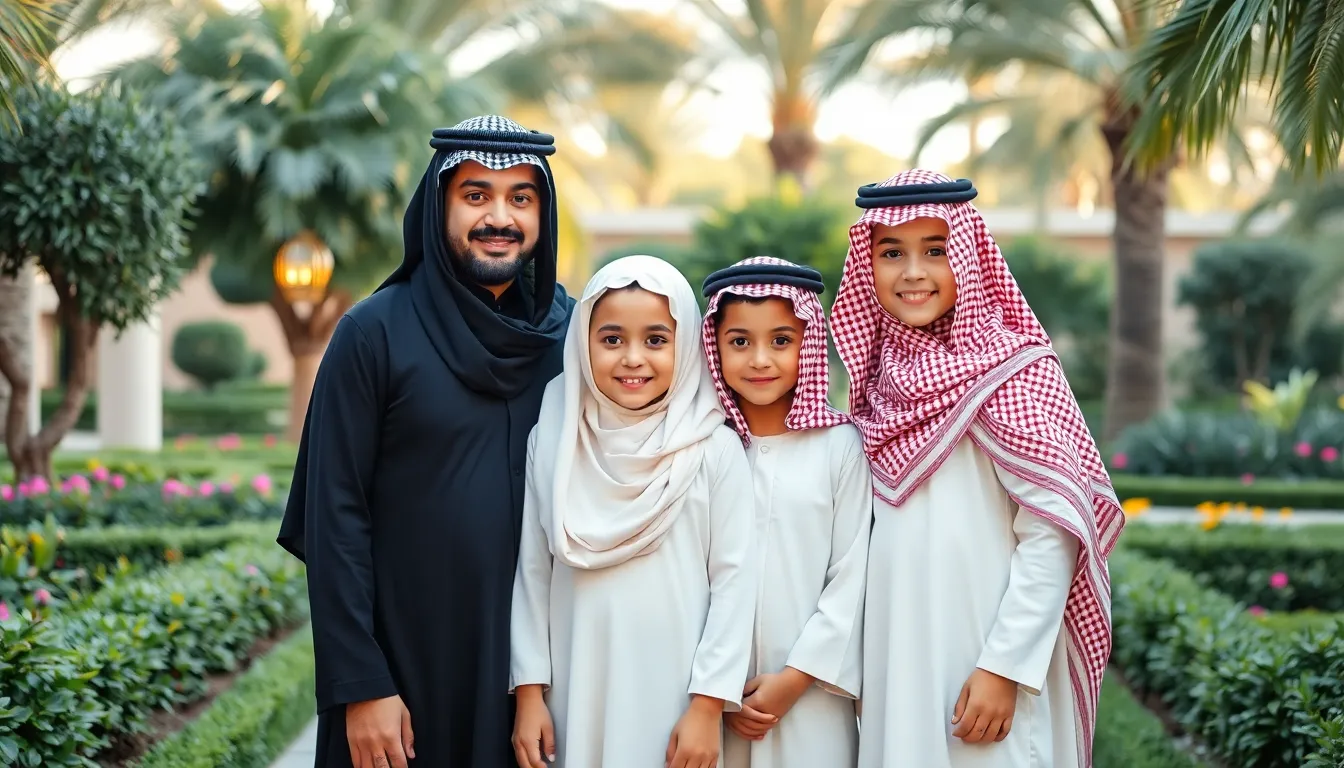Sara bint Mashour Al Saud, a prominent figure in the Saudi royal family, has garnered attention not just for her lineage but also for her role as a mother. Her children represent a blend of tradition and modernity, embodying the values of their heritage while navigating the complexities of contemporary life in Saudi Arabia.
As the daughter of Prince Mashour bin Abdulaziz Al Saud, Sara’s family background is steeped in royal history. Her children are poised to play significant roles in the future of the Kingdom, making their upbringing and education a topic of interest for many. This article delves into the lives of Sara’s children, exploring their unique identities and the influence of their royal heritage.
Table of Contents
ToggleOverview of Sara Bint Mashour Al Saud
Sara bint Mashour Al Saud stands out as a distinguished member of the Saudi royal family. She plays a significant role in both her family and society. Her approach to motherhood emphasizes a blend of traditional values and modernity, fostering a balanced upbringing for her children.
Sara emphasizes education, ensuring her children receive a comprehensive understanding of their royal heritage. They participate in cultural activities that instill pride in their lineage while embracing contemporary influences. This dual focus prepares them for potential leadership roles within the Kingdom.
Her children reflect the complexities of Saudi society, navigating both heritage and modern expectations. Sara’s nurturing environment encourages their personal growth and development while maintaining respect for their roots.
Background Information

Sara bint Mashour Al Saud’s children represent a blend of royal tradition and contemporary upbringing, reflecting their family’s significance in Saudi society.
Family Heritage
Sara bint Mashour Al Saud hails from the esteemed Saudi royal family, known for its deep-rooted customs and influence. Her children inherit a legacy rich in history and values, shaping their identity within a modern context. They are raised with a strong sense of duty toward their community and country. The family’s heritage emphasizes the importance of cultural traditions, which are instilled in Sara’s children through various activities and teachings, fostering respect and appreciation for their lineage while preparing them for future responsibilities.
Early Life
The early life of Sara’s children is characterized by an environment nurturing both academic and personal growth. Education ranks as a priority, with emphasis on achieving excellence in various fields. They are encouraged to engage in cultural programs and community service, reinforcing their understanding of their royal obligations. Exposure to diverse experiences fosters adaptability and broadens their perspectives. This carefully curated upbringing equips them with the skills and knowledge necessary for potential leadership roles in Saudi Arabia.
Sara Bint Mashour Al Saud Children
Sara bint Mashour Al Saud has three children, each raised with a strong emphasis on education and cultural heritage. Their upbringing aligns with the values of the Saudi royal family while addressing the dynamics of modern society.
Number of Children
Sara bint Mashour Al Saud has three children: two daughters and one son. The children’s names are:
- Princess Ghada: The eldest daughter, known for her involvement in charitable activities.
- Princess Nouf: The second daughter, who has shown interest in arts and culture.
- Prince Saud: The youngest child, noted for his academic achievements.
Their diverse activities reflect their individual talents and interests while remaining anchored in their royal heritage.
Notable Achievements
Each child of Sara bint Mashour Al Saud has notable achievements reflecting their upbringing. Specific accomplishments include:
- Princess Ghada: Actively engages in several charitable organizations, advocating for education and health in the community.
- Princess Nouf: Recognized for her contributions to cultural initiatives, including art exhibitions and cultural festivals.
- Prince Saud: Awarded scholarships for academic excellence, demonstrating leadership skills in various youth programs.
These achievements illustrate their commitment to serving their community and upholding their family’s legacy within Saudi Arabia.
Public Perception and Media Coverage
Public perception of Sara bint Mashour Al Saud’s children reflects the evolving image of the Saudi royal family. Media coverage highlights their contributions to society and the modernization of traditional values.
Influence on Saudi Society
Influence on Saudi society stems from the children’s active participation in community service and cultural initiatives. Princess Ghada champions education and health, directly impacting local organizations. Princess Nouf showcases cultural heritage through art exhibitions, fostering a sense of pride among Saudis. Prince Saud engages youth through academic pursuits and leadership roles, encouraging the younger generation to participate in societal development. Their involvement promotes a narrative that blends tradition with progress, resonating with many in the Kingdom.
Representation in Media
Representation in media focuses on the children’s accomplishments and their connection to royal heritage. News outlets frequently cover their participation in charitable events, highlighting their commitment to social responsibility. Social media platforms amplify their activities, creating relatable personas that resonate with young Saudis. The media often portrays them as modern figures, bridging the gap between tradition and contemporary values. This representation shapes public perception, positioning Sara’s children as influential role models within Saudi Arabia.
Sara bint Mashour Al Saud’s children are poised to play significant roles in the future of Saudi Arabia. Their upbringing reflects a harmonious blend of tradition and modernity. Each child showcases unique talents and a strong commitment to community service, making them influential figures in their own right.
As they navigate their royal heritage, their involvement in education, culture, and youth leadership illustrates a dedication to their country and its values. The public’s perception of them continues to evolve, highlighting their potential as role models for the next generation. With a solid foundation in both academic and personal growth, they are well-equipped to contribute meaningfully to Saudi society.


